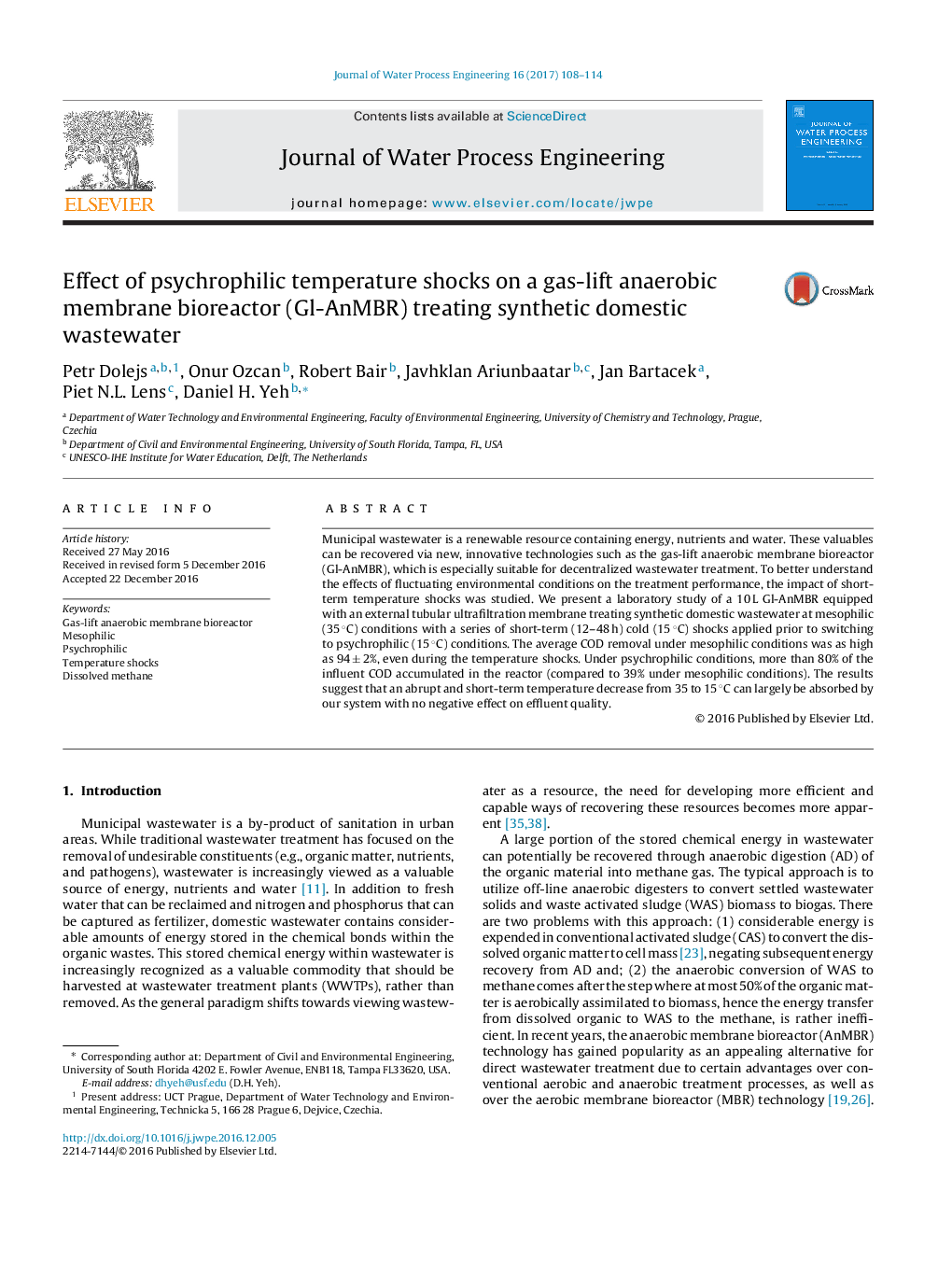| Article ID | Journal | Published Year | Pages | File Type |
|---|---|---|---|---|
| 4910062 | Journal of Water Process Engineering | 2017 | 7 Pages |
Abstract
Municipal wastewater is a renewable resource containing energy, nutrients and water. These valuables can be recovered via new, innovative technologies such as the gas-lift anaerobic membrane bioreactor (Gl-AnMBR), which is especially suitable for decentralized wastewater treatment. To better understand the effects of fluctuating environmental conditions on the treatment performance, the impact of short-term temperature shocks was studied. We present a laboratory study of a 10 L Gl-AnMBR equipped with an external tubular ultrafiltration membrane treating synthetic domestic wastewater at mesophilic (35 °C) conditions with a series of short-term (12-48 h) cold (15 °C) shocks applied prior to switching to psychrophilic (15 °C) conditions. The average COD removal under mesophilic conditions was as high as 94 ± 2%, even during the temperature shocks. Under psychrophilic conditions, more than 80% of the influent COD accumulated in the reactor (compared to 39% under mesophilic conditions). The results suggest that an abrupt and short-term temperature decrease from 35 to 15 °C can largely be absorbed by our system with no negative effect on effluent quality.
Related Topics
Physical Sciences and Engineering
Chemical Engineering
Chemical Engineering (General)
Authors
Petr Dolejs, Onur Ozcan, Robert Bair, Javhklan Ariunbaatar, Jan Bartacek, Piet N.L. Lens, Daniel H. Yeh,
